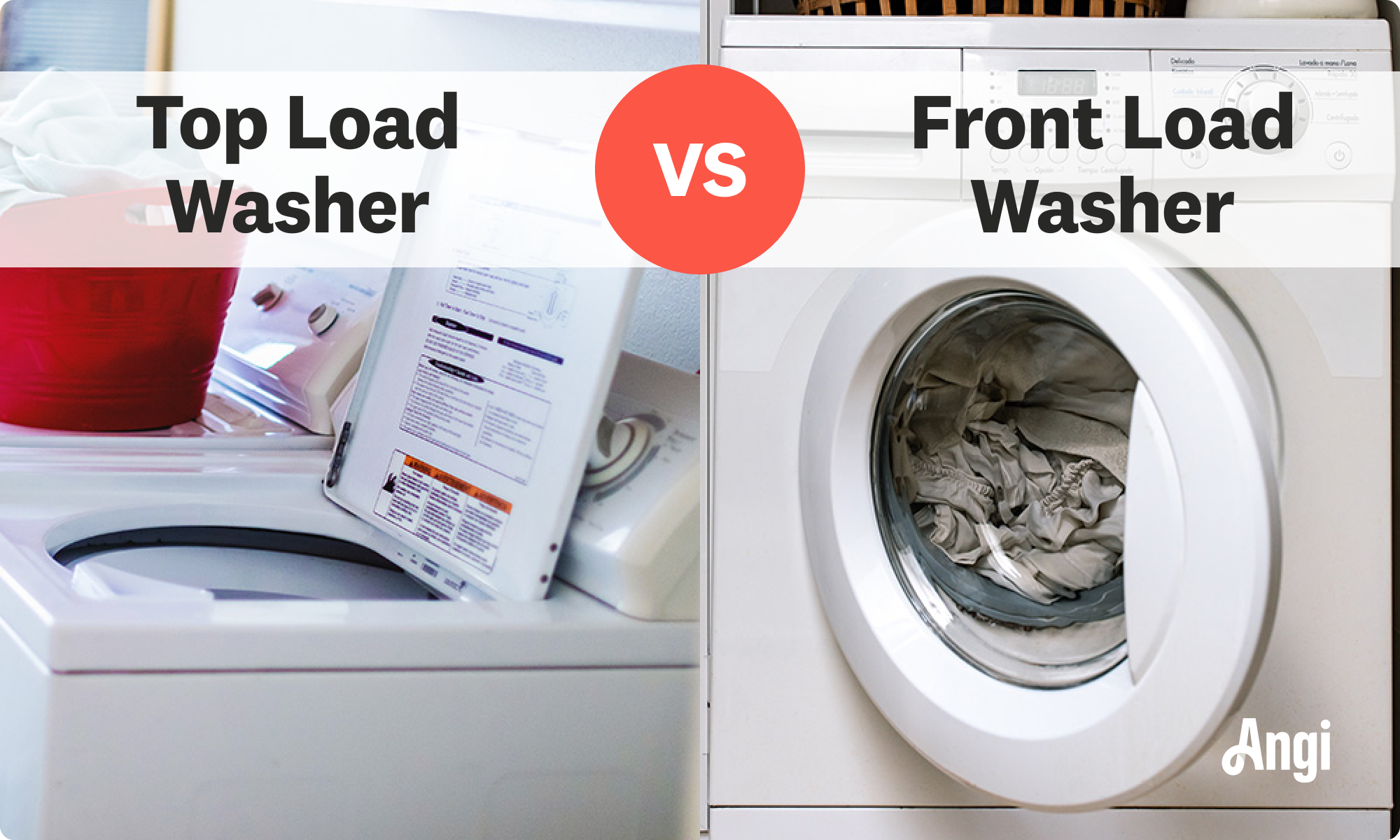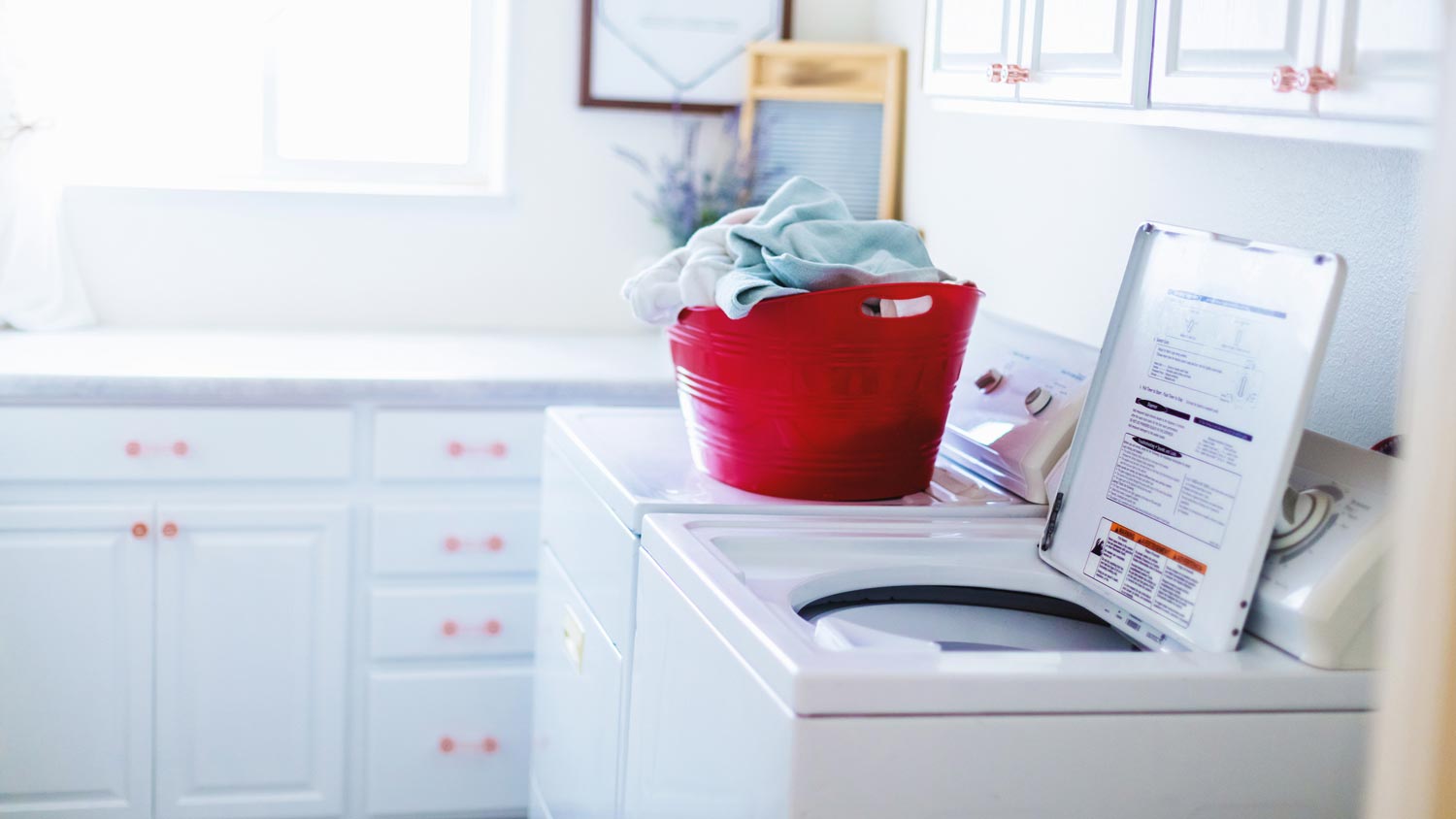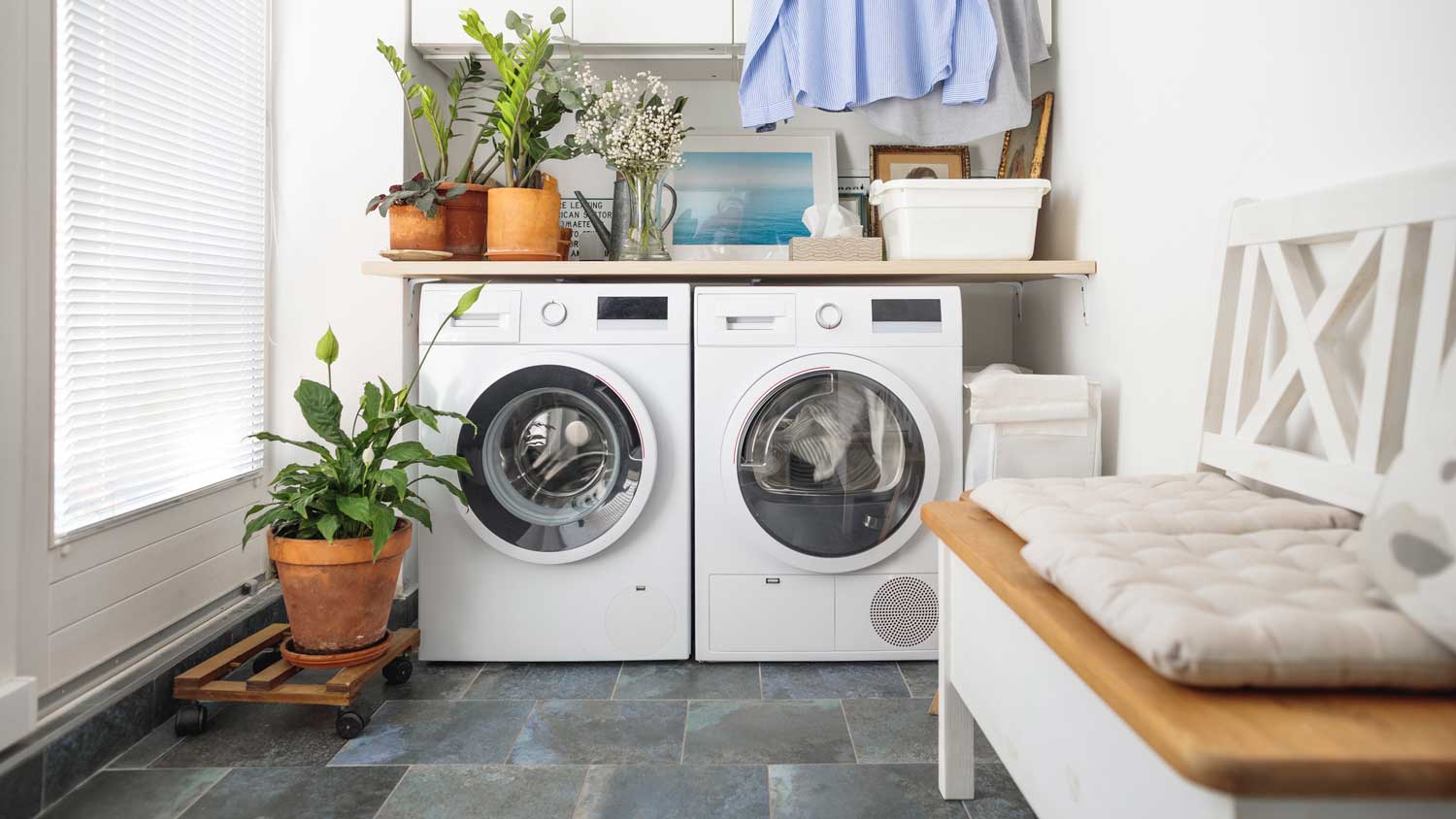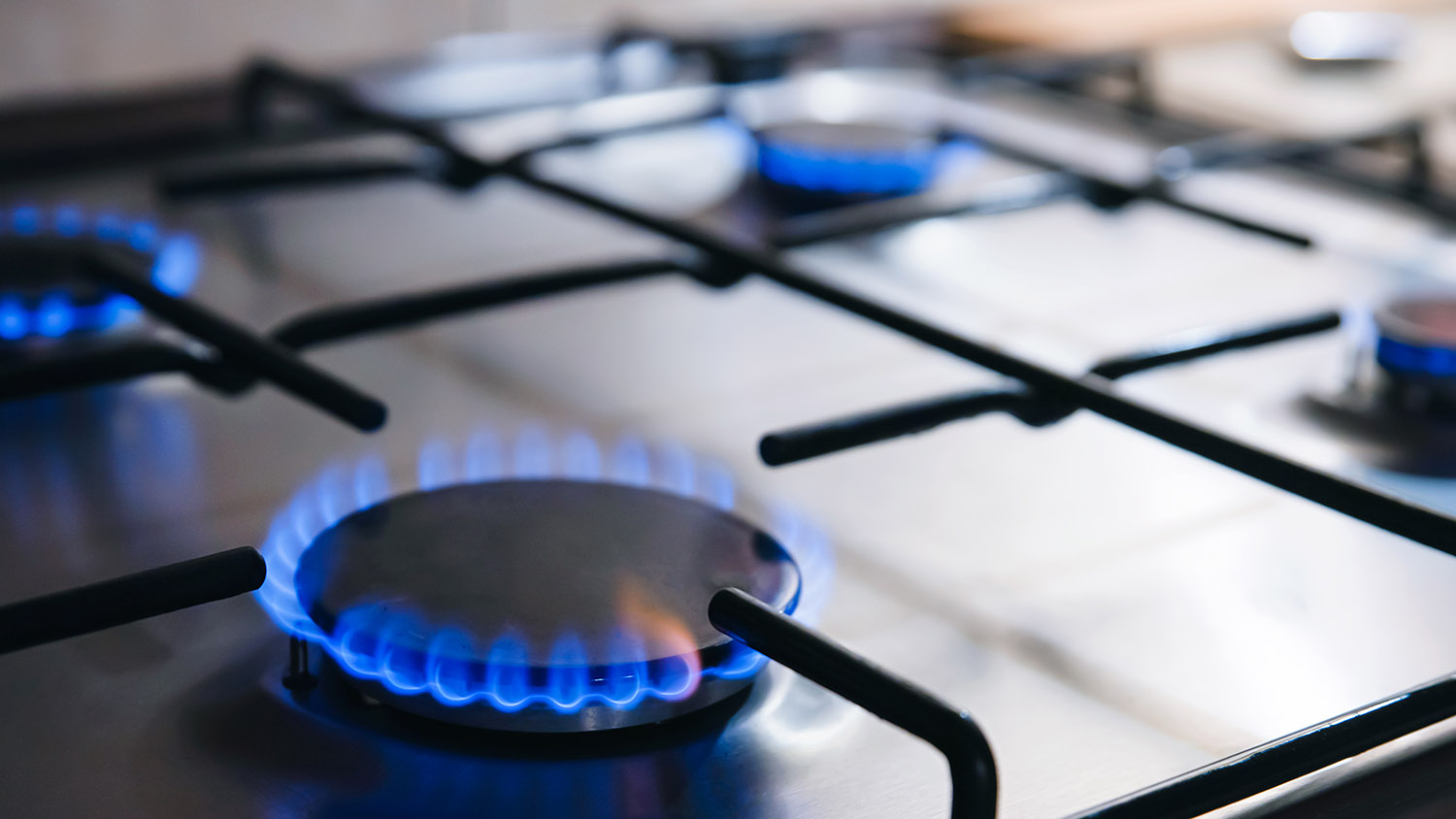
Discover the cost to install washer and dryer hookups. Learn about price factors, labor, materials, and tips to save on your laundry room project.
Clean up your laundry routine with the right washing machine


A front load model has up to 40% more load capacity than a top load washer.
Front load washers save up to 50% energy and up to 65% water.
Top load models cost less upfront, with prices starting at $350.
Front load washers last around 10 years, while top load washers last up to 14 years.
Laundry is already a chore, but having a reliable washing machine can make the process less of a hassle. But when shopping for this appliance, you’ll need to consider the differences between top load versus front load washers to decide which is right for your home. With differences in cost, size, load capacity, accessibility, efficiency, and even detergent types, top load and front load washers are very different, despite the fact that they’re designed to do the same thing.

The biggest difference between top load versus front load washers is how you put the laundry into the appliance, but they also vary by size, cost, and efficiency. People who choose front load washers often prefer that they are stackable, quieter, typically more attractive, and more energy- and water-efficient. Top load washers, meanwhile, tend to be more affordable, longer-lasting, and easier to maintain.

A top load washer is an appliance that opens from the top. This style of washer has an agitator or an impeller inside the washing machine drum to thoroughly clean clothes. This design has been around for decades, so using a top load washer is an easy learning process. Plus, the simple design makes top load washers easy to maintain.
| Pros | Cons |
|---|---|
| Lower upfront cost | Smaller load capacity |
| Lower maintenance | Less water- and energy-efficient |
| Quicker wash cycles | May tangle laundry |
Best for:
Larger laundry rooms that don’t require stacked appliances
Households with smaller amounts of laundry
Lower appliance budgets
A top load washer has several benefits, including upfront costs. Top load washers cost around $350 and up, which is typically at least a few hundred dollars less than their front loading counterparts.
Top load washers are brilliant in their simplicity. Because they don’t require extra seals and gaskets to keep water from leaking out of the door, top load washers tend to be easier to maintain over time, saving you money on the cost to repair appliances.
Thanks to the cleaning action of the agitator or impeller, top load washers typically have faster cycles, allowing you to get through more loads of laundry in an afternoon. Plus, if you forget to throw your favorite blouse in after starting the washer, top load washing machines often allow you to unlock and open the door to throw something in mid-cycle.
While the agitator or impeller make for speedy wash cycles, they can also be a little more aggressive than the spinning design of a front load washer. That means clothes are more likely to tangle or even stretch in a top load washer.
Top load washing machines are smaller in size than front load washers, and that means they can’t hold as much laundry per load. You may not be able to fit your quilt in a top load washer. The smaller, top loading design also means that you can’t stack this type of washing machine. You’ll need a wider space to accommodate the washer and dryer.
Top load models tend to use more water and energy per cycle than a front load washer. This can add up to higher operating costs over time.

A front load washer features a door at the front of the appliance that swings open to the left or right. Rather than relying on an agitator or impeller, a front load washer uses a constant tumbling or rotating motion of the drum to clean clothes. This means clothes can get more thoroughly clean without as much water or power. One major difference between a top load versus a front load washer is that a front load washer is stackable with a compatible dryer.
| Pros | Cons |
|---|---|
| Stackable | May require special detergent |
| Larger load capacity | Higher upfront cost |
| Quieter operation | Difficult to install |
Best for:
Narrow spaces
Households with larger amounts of laundry
Eco-conscious households
For a sleek, space-saving design, a front load washer is the way to go. These models usually come in more modern and stylish finishes, like gunmetal gray or deep red, and can stack with a dryer to save space.
Even though they have a space-saving, stackable design, front load washers are actually up to 40% larger than top load models. This means they have more room for larger loads of laundry, so you can wash fewer loads a week.
Without the agitator or impeller, front load washers operate much more quietly than a top load model. So if your appliance hookups are in a closet near someone’s bedroom, you can wash a load of clothing without waking anyone.
Many front load washers come with an HE label, meaning they are high-efficiency washing machines. While this is great for saving on energy and water, it also means the washer requires a special HE-compliant detergent, which may cost more than traditional detergent.
Front load washers tend to come at a higher upfront cost than top load models, and they can be more difficult to install. If you want to stack your washer and dryer, you’ll need to hire a local appliance installation pro to make sure both appliances are secure.
Maintenance can be tricky, too. There are more seals and gaskets needed to prevent water from leaking out of the appliance, and those parts will need regular inspections and repairs to keep the washer in good shape. You’ll also need to diligently clean the washer at least once per month to prevent mold and mildew from growing in the drum or around the door.

When shopping for a top load versus a front load washer, there are many factors to consider. From your budget to the amount of space you have for laundry appliances, these factors can sway your decision. Here’s how top load and front load washers compare when it comes to common buying criteria.
While homeowners will find many attractive washers of all types on the market these days, front load washers are generally known for being more stylish. They often come with sleeker designs and look particularly great when stacked with a companion dryer. Also, front load washers come in a wide range of colors, from classic white to bolder red or blue tones.
Again, front load washers often come with many bells and whistles that make them a good option for people who are particular about their laundry. These models often come with more cycle options, like steam or sanitize. You may opt for smart front load washers for even more functionality and convenience.
A top load washer costs around $350 to $1,000, while a front load washer costs around $700 to $2,000. But keep in mind that front load washers are designed for energy- and water-efficiency, meaning they may save you money in the long run by lowering your monthly utility bills.
While you should always leave washer installation to a pro, as your appliance must meet washing machine drain codes, top load washers are easier to install compared to a stackable front load washer, which will require restraints to keep both appliances steady and in place.
With its simpler design, top load washers tend to be easier to repair, especially compared to smart front load models. Even still, it’s best to leave washing machine repairs to the pros, whether you need to drain the washing machine or fix a leak.
With fewer parts and a simpler design, top load washers tend to require less maintenance than front load washing machines. They are less susceptible to mold and mildew, so you don’t have to constantly remember to wash the door gaskets and seals.
When it comes to how long a washing machine lasts, top load washers take the crown thanks to their simpler design and lower maintenance requirements. These washers last around 14 or more years, while many front load washers last about 10 years.
A front load washing machine can save between 20% to 50% on energy and 30% to 65% on water compared to a top load model. This means that front load washers are a more eco-friendly option.
From average costs to expert advice, get all the answers you need to get your job done.

Discover the cost to install washer and dryer hookups. Learn about price factors, labor, materials, and tips to save on your laundry room project.

A wood stove can add warmth and ambiance to your home, but is it in your budget? Discover average wood-burning stove installation costs in this guide.

Get a clear estimate for stove repair costs. Learn what impacts pricing, compare repair vs. replacement, and find tips to save on your next stove repair.

Overwhelmed with dishwasher options? Learn about the different types of dishwashers to increase efficiency and space in your kitchen.

Looking for a new washer or dryer to keep your clothes fresh and clean? Learn how to choose a washer and dryer by knowing what to consider.

After buying a new vented dryer, you may be wondering how to install it. Follow our step-by-step guide on how to install a dryer vent.